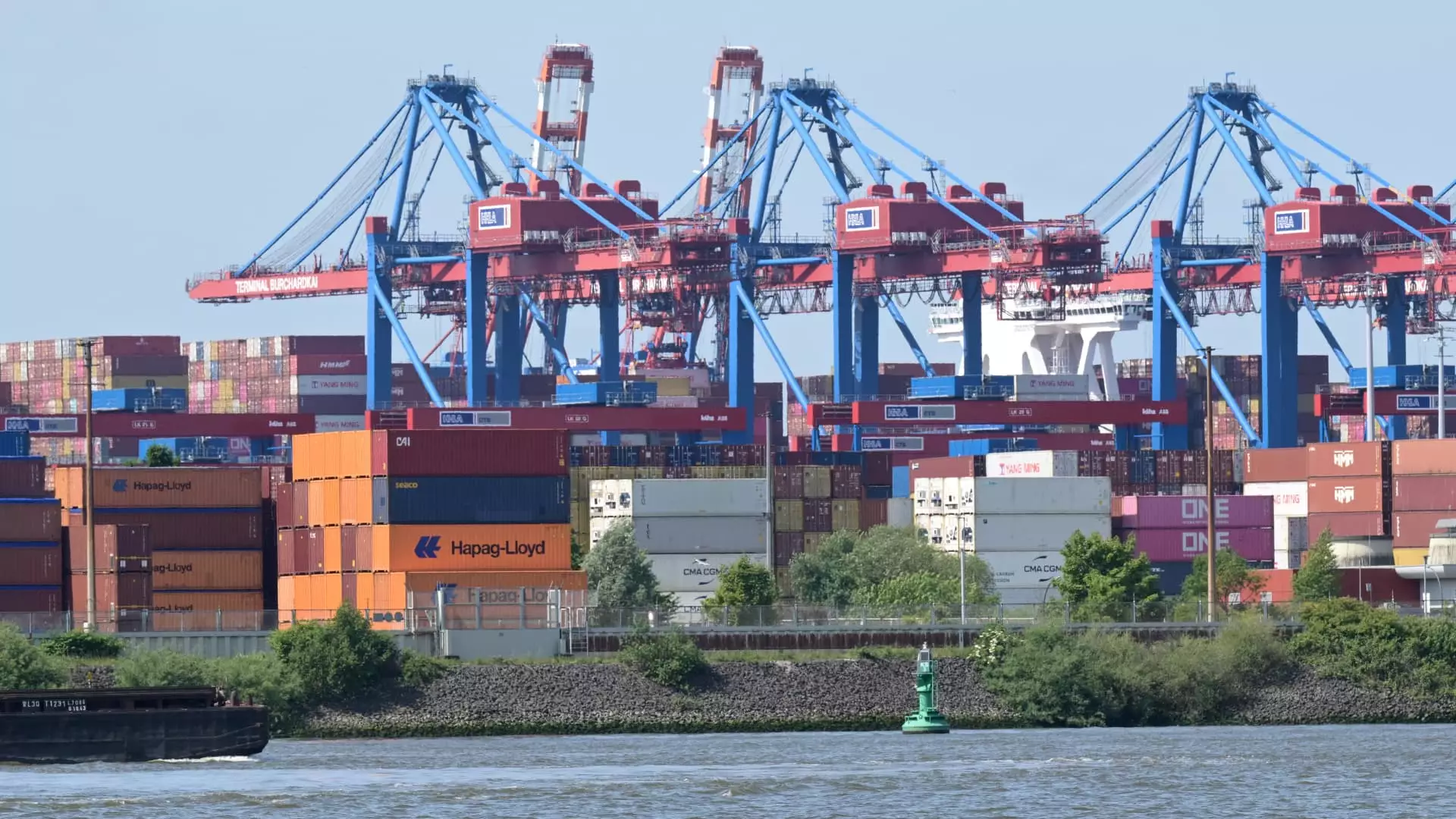As the clock winds down towards the looming deadline, the future of the United States and European Union’s trade relationship hangs in a delicate balance. The impending tariffs threaten to cast a shadow over the transatlantic partnership, which has long been a cornerstone of global economic stability. Both sides find themselves entangled in a complex web of negotiations, driven by deep-seated mistrust, economic nationalism, and conflicting priorities.
The EU’s reliance on export-driven growth makes it particularly vulnerable to the potential fallout. With goods ranging from pharmaceuticals and automobiles to energy products, the bloc faces substantial economic repercussions if duties soar to retaliate against U.S. tariffs. Conversely, the U.S. perceives its trade deficit with the EU—and its broader economic interests—as being under siege, leading to aggressive rhetoric and a willingness to risk long-term damage for the sake of short-term leverage. The scenario underscores not just a disagreement over tariffs but also a broader clash of economic ideologies: protectionism versus free trade.
The Power Play Behind the Negotiations
What truly stands out is the stark absence of genuine goodwill among the negotiating parties. U.S. President Donald Trump’s consistent criticisms of the EU’s trade policies reflect a mindset driven more by tactical positionality than mutual cooperation. From his perspective, the EU has historically exploited U.S. market access, and this perceived imbalance fuels his administration’s hardline stance.
European officials, for their part, are caught between defending their economic interests and avoiding a damaging rupture. European Commission President Ursula von der Leyen’s blunt admission that a comprehensive deal is “impossible” in such a tight window reveals a recognition that negotiations are unlikely to deliver concrete results within the current framework. Instead, a minimalist “agreement in principle” may be the only attainable outcome—one that leaves many unresolved issues simmering beneath the surface.
This strategic limbo highlights a broader failure of diplomatic leadership. Rather than facilitating genuine compromises, the negotiations seem driven by brinkmanship, with each side preparing for the worst-case scenario. The EU’s diplomatic posture, emphasizing that “all instruments are on the table,” signals both readiness for retaliation and a lack of hope for a quick resolution.
Market Reactions and the Risks of Escalation
Markets and industry sectors have been nervously watching these developments unfold. The specter of tariffs reaching up to 50% on crucial U.S. imports—coupled with European retaliatory measures—could trigger ripple effects across global supply chains. An escalation could inflict significant economic pain, especially in manufacturing, pharmaceuticals, and energy sectors, which are heavily intertwined across the Atlantic.
Beyond economics, this standoff risks rewriting the geopolitical landscape. The transatlantic alliance, historically founded on shared values and mutual interests, is showing signs of strain under aggressive protectionist tendencies. Policymakers close to the negotiations must recognize that this deadlock is not just a matter of tariffs but a test of the resilience of their partnership and shared economic vision.
The question arises: is this deadlock an unavoidable consequence of political brinkmanship, or does it signal an opportunity to rethink the fundamentals of transatlantic trade? European leaders have repeatedly emphasized their desire for a “good and ambitious” deal, yet tangible progress remains elusive. Meanwhile, American rhetoric often dismisses multilateral agreements as disadvantaging U.S. interests, undermining decades of diplomatic effort to strengthen cooperative frameworks.
A Critical Juncture for the Future of Global Trade
In the face of mounting pressures, the stakeholders involved display a troubling tendency toward short-termism. The negotiations, rather than being a strategic pursuit of mutual benefit, risk degenerating into a selfish contest of resilience and resilience. A full-scale trade war would be damaging for both sides and could undermine the very foundations of the post-World War II order that has sustained peace and prosperity in the West.
Yet, within this chaos lies an opportunity—a chance to reset and recommit to a balanced, fair trade system rooted in mutual respect rather than unilateral gains. The EU and the U.S. should recognize that their economic destinies are intertwined; cooperation, not confrontation, is the true path toward sustainable growth. Flouting this principle could mean sacrificing hundreds of billions in economic gains, pushing both regions toward increased instability, and fostering a global environment ripe for protectionism elsewhere.
The coming days are pivotal. The decisions made—or avoided—now will send powerful signals about America and Europe’s willingness to prioritize long-term stability over short-term dominance. The question is whether they have the courage to transcend their differences and forge a consensus built on fairness and shared prosperity—or if they will succumb to the siren call of economic nationalism that threatens to unravel a historic partnership.


Leave a Reply